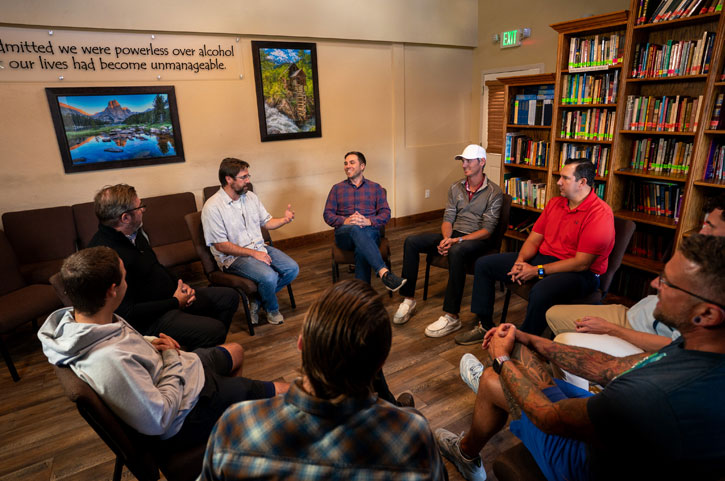
How Much Does Inpatient Rehab Cost?
One of the first questions men ask when considering treatment is how much does inpatient rehab cost. It’s a fair question—and an important one. The cost of rehab can feel

Situated in the western slope of Colorado our location offers a wide variety of different world-class outdoor activities that focus on physical, mental health and well-being while creating unique experiences.

The Jaywalker Expedition Program offers participants a holistic approach to recovery by combining the therapeutic benefits of nature, physical activity, adventure, camaraderie, and skill-building.
Enjoy indepth articles surrounding the topic of addiction treatment and mental health. Learn more about Jaywalkers programs and services.


One of the first questions men ask when considering treatment is how much does inpatient rehab cost. It’s a fair question—and an important one. The cost of rehab can feel

Quick Overview Residential treatment vs inpatient rehab refers to two distinct levels of addiction care for men, each designed to meet different medical, clinical, and recovery needs. Although both involve

Quick Overview PHP treatment typically lasts between four and six weeks, depending on clinical needs, progress in care, and readiness to step down. This guide explains PHP treatment length, daily

Quick Overview Being powerless over alcohol doesn’t mean you’re weak. It means your drinking has reached a point where willpower alone can’t control it. This blog explains what being powerless

Quick Overview Relapse triggers are emotional, physical, and environmental cues that can pull a man back toward alcohol or drug use, sometimes without warning. This guide explores how triggers form,

Quick Overview This guide explains how a dual diagnosis IOP supports men who are dealing with both mental health challenges and substance use. It outlines who benefits from an IOP

Dual diagnosis occurs when a person has both a mental health disorder and a substance use disorder at the same time. Treating both together through integrated care leads to better

To prevent relapse after treatment, develop a personalized relapse prevention plan that includes coping strategies, early-warning signs, and a reliable support network. These tools help you manage cravings, reduce stress,

Addiction and mental illness don’t improve with quick fixes or band-aids. They take time, dedication, and a safe place where someone can focus on getting better. That’s exactly what residential
Lorem ipsum dolor sit amet, consectetur adipiscing elit. Ut elit tellus, luctus nec ullamcorper mattis, pulvinar dapibus leo.
Lorem ipsum dolor sit amet, consectetur adipiscing elit. Ut elit tellus, luctus nec ullamcorper mattis, pulvinar dapibus leo.
Lorem ipsum dolor sit amet, consectetur adipiscing elit. Ut elit tellus, luctus nec ullamcorper mattis, pulvinar dapibus leo.